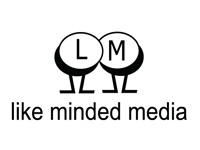Dinner and a movie with VAFF: Crime After Crime Reviewed

 A Guest Post by Stephanie Fairall, Social Media Coordinator for Reel Causes
A Guest Post by Stephanie Fairall, Social Media Coordinator for Reel Causes
Last week, Reel Causes teamed up with The Battered Women’s Support Services and My Sister’s Closet to screen Yoav Potash’s film ‘Crime After Crime.’ I was excited to see the film as my curiosity about life in women’s prison and the judicial systems in America had already been sparked after watching the second season of ‘Orange is The New Black’. What I did not expect was to leave the theatre feeling utterly appalled by California’s judicial system’s lack of regard for moral and ethical responsibility.
‘Crime After Crime’ follows the story of Deborah Peaglar who, as a young woman, was excessively abused by her boyfriend and forced into a life of fear and misery. After yearsof finding no escape from her abuser, Debbie was left with no choice but to enlist the help of two local gang members. However, the two men did more than scare Debbie’s abuser off and, in 1983, she was sentenced to 25 years-to-life in prison for playing a role in the murder of her boyfriend. As a victim of domestic violence, Debbie was wrongfully charged; her maximum sentence should have been six years. Fortunately, Debbie’s prayers for freedom were answered 20 years into her sentence when Joshua Safran and Nadia Costa, two fresh-faced lawyers, re-opened the case in 2005.
Safran and Costa’s 7 year fight (working probono) for Debbie’s freedom was no cake walk. As their first stab at criminal law, neither attorney had anticipated that Debbie’s case would amount to such a struggle, highlighting the corruption thread throughout California’s judicial system. After years of uncovering hidden evidence and fighting against the DA’s office, Safran and Costa finally had good news for Debbie – despite her ailing health after over 26 years in prison, she would finally walk free.
The film’s director, Yoav Potash, went out of his way to follow the guiding light that Debbie had become. Many of the other women serving time had also been forced into lives controlled by their abusers, lives they never intended to lead. Debbie helped them to live life in jail to the fullest and, as the number of women who are incarcerated at the hands of abusive men continues to increase, her story opens a dialogue that cannot be ignored.
Having gained much unforeseen attention, Debbie’s case is a sign that this film was worth making. Potash and his crew went above and beyond, dedicating a part of their lives to bring to light the darkest parts of Debbie’s path, to show us how brightly Debbie shone despite her desperate circumstances. And were it not for two intrigued lawyers passion for justice Debbie wouldn’t have had a chance to tell her side, to demonstrate that justice within the American system has become an empty promise. It is in this story that Potash has revealed Debbie’s greatest gift for others suffering from abuse – a glimmer of hope.



























Follow Us!